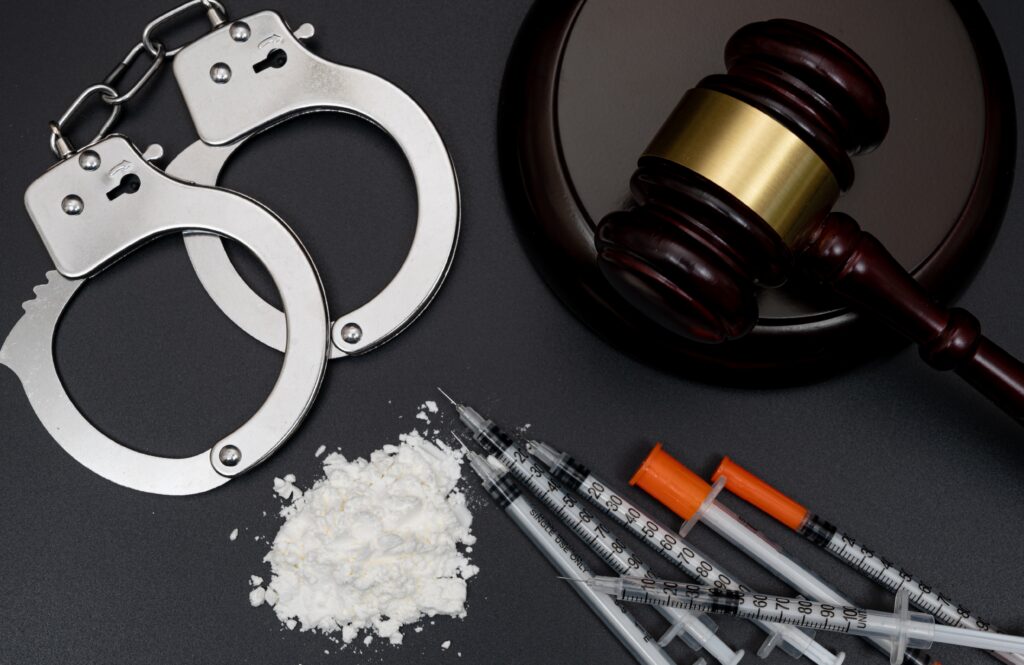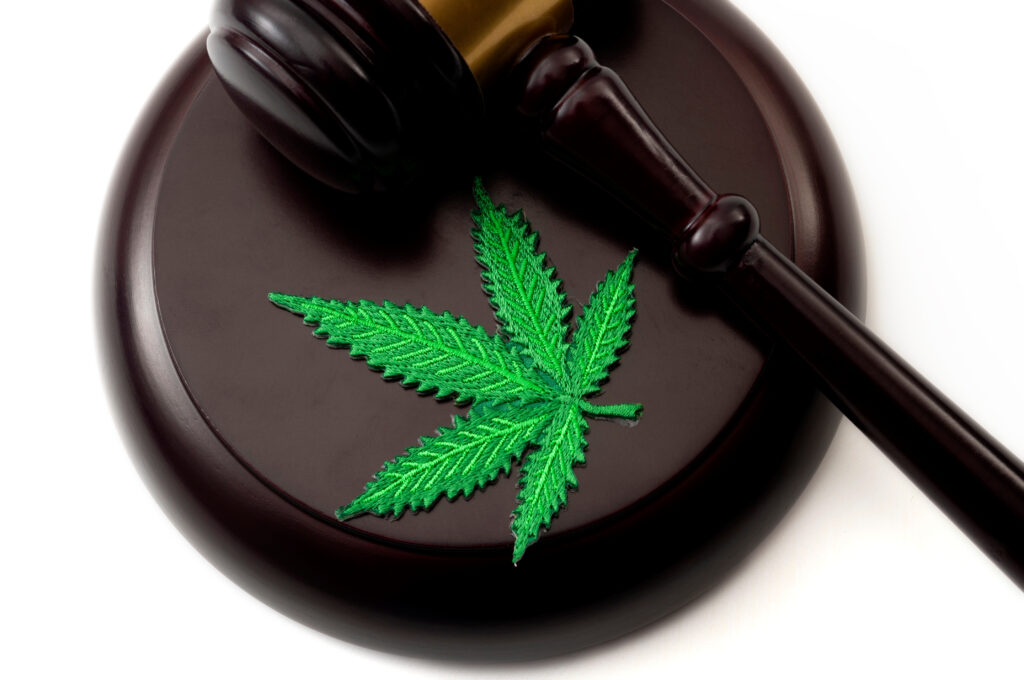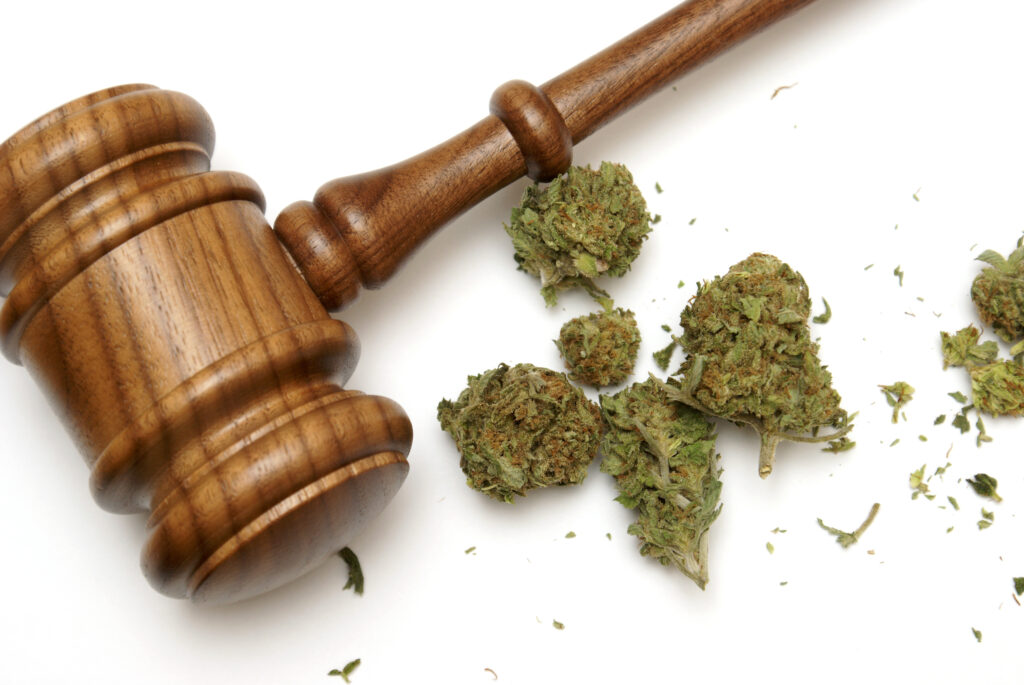If authorities convict you as a first-time drug offender in Texas, two primary factors influence your charge - the penalty group of the drug and how much of a drug or drugs you possess.
The controlled substance laws in the state require the prosecutor to show that you intentionally or knowingly possess illegal drugs. Possession entails having custody, care, control, or management of a drug. If you're facing charges related to drug possession, it's imperative to consult with a knowledgeable criminal defense attorney in San Angelo, Texas, who can provide you with expert legal guidance and representation.
Drug Crime Classifications

As noted, essential elements of a first-time drug possession charge are the type of drug you had and how much you consumed. A drug with a lower classification number is less likely to be used as a legal medicine and is more likely to be abused. Below are the penalty categories.
- Penalty Group One, 1A includes drugs such as cocaine, heroin, and methamphetamine.
- Penalty Group Two comprises ecstasy, PCP, and psychedelic mushrooms.
- Penalty Group Three is composed of anabolic steroids, Lorazepam (Ativan), and Methylphenidate (Ritalin).
- Penalty Group Four includes opioid drugs and codeine.
Drug Amounts
Law enforcement officials measure drugs by their weight or number of plants. This amount partially determines whether you'll face a misdemeanor or felony and the type of charge you'll receive. For instance, you'll typically be charged with a felony if you possess a large amount of an illegal substance.
Drug Activity
Drug possession is considered a drug activity that is a lesser crime than the delivery of a drug or drug manufacturing. However, possessing a large amount of an illegal drug might lead to the assumption that you're also involved with delivery or a drug's manufacture. As a result, a possession charge can be more serious because it may include more people in the overall activity.
Drug Sentencing in Texas
A drug crime in the Lone Star State may range from a Class B misdemeanor to a first-degree felony. A charge of drug possession usually depends, again, on the type and size of the drug.
Types of Convictions and Punishments
Drug possession charges and punishments can include the following under Texas law:
- Class B Misdemeanor: Up to 180 days in jail with a $2,000 fine.
- Class A Misdemeanor: Up to a year in jail with a $4,000 fine.
- State Jail Felony: 180 days to two years in a state jail with a fine of up to $10,000.
- Third-Degree Felony: Two to 10 years in prison and a fine of $10,000.
- Second-Degree Felony Offense: Up to 20 years in prison with a fine of up to $10,000.
- First-Degree Felony Offense: From five years to 99 years to life imprisonment with a fine of up to $10,000.
Getting Charged with Marijuana Possession
In Texas, marijuana has its classification. If caught with two ounces or less of the substance, you can face a misdemeanor charge of up to 180 days in jail and a fine of $2,000.
Potential Defenses for a First-Time Drug Possession Defense
You have several possible defenses for a first-time offense for the possession of drugs.
Pre-trial Intervention or Diversion
One defense you may want to consider is pre-trial intervention or diversion. This defense is made possible by entering an agreement with the District Attorney's (DA) office.
Pre-trial intervention allows eligible people to avoid traditional prosecution by agreeing to adjudication or court-determined requirements. These requirements may include attendance at a substance abuse counseling program, undergoing drug tests, and staying out of trouble for a certain period.
If you meet the program's conditions, the court can dismiss your case, making you eligible for expunction. Expunction erases the drug possession charge from your criminal record. That's why it's important to ensure your future by speaking to an experienced criminal defense lawyer focusing on drug possession cases.
More Defense Strategies

First-time drug possession defense lawyers have several other strategies at their disposal as well - all of which can lead to a better outcome in your case,
Challenging the Search and Seizure
Your drug defense lawyer might question the legal basis of the search and seizure that led to the discovery of drugs. If the police violated your constitutional rights during an investigation, your defense attorney can initiate a motion to suppress evidence obtained from an illegal search.
Bargaining for Reduced Charges
Your attorney may negotiate with the prosecutor to seek a reduction in the charge.
Questioning the Evidence
Your lawyer might challenge the prosecution's evidence if they doubt its authenticity through the cross-examination of witnesses or upon review of the distribution chains regarding the seized substance.
Mitigating Factors
Your lawyer can argue to reduce your charges. They might claim certain mitigating factors exist - the lack of a criminal history or a mental impairment.
Why a Drug Defense Lawyer's Help is Invaluable
When you face drug possession charges, it's undeniably a challenging situation.
However, working closely with a lawyer can greatly benefit these cases.
Protecting Your Rights
Lawyers are well-versed in your rights, ensuring their protection throughout every legal process. From the moment of your arrest to any potential trial, they can identify any violations that may have occurred.
What Does The Evidence Reveal?
Let your attorney look at the evidence the prosecution has against you. They can find weaknesses or issues that discredit parts of your case.
Bargaining and Negotiations
Attorneys are trained negotiators and can work with prosecutors to get them to reduce charges or agree upon a more favorable outcome, such as probation or participation in a diversion program.
Get Set for Trial: Making Sure You're Prepared
An attorney's help is essential when preparing for court if your case goes to trial. They'll help cross-examine witnesses, present exculpatory evidence, make legal arguments, and, most importantly, ensure you receive fair treatment.
Arguing for Reduced Sentencing

If convicted, your attorney can argue for leniency by presenting mitigating factors or character references, leading to alternatives to typical incarceration options.
Appealing Your Case
If worse comes to worse after your conviction, your lawyer can file appeals in higher courts while they keep fighting for you.
People arrested for drug possession often find the legal system unfriendly. When things look bad, a good attorney will give you the guidance and support you need for the challenges that lie ahead.
Contact a Drug Possession Defense Lawyer in Texas About Your Case Right Away
By hiring a Texas criminal defense attorney, you can experience a better outcome if facing a drug possession offense. They can explain your rights and guide you through the legal process so you can realize more positive results.
